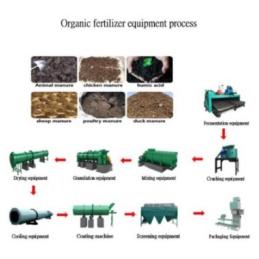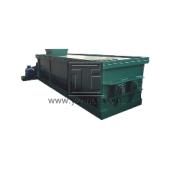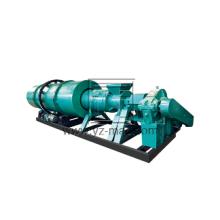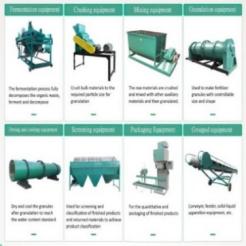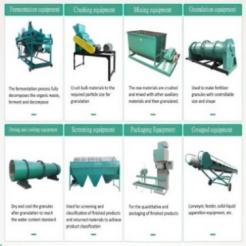Organic fertilizer production process
The organic fertilizer production process involves the following steps:
1.Collection of raw materials: This involves collecting organic materials such as animal manure, crop residues, food waste, and other organic materials suitable for use in making organic fertilizer.
2.Composting: The organic materials are subjected to a composting process that involves mixing them together, adding water and air, and allowing the mixture to decompose over time. This process helps to break down the organic materials and kill any pathogens present in the mixture.
3.Crushing and mixing: The composted organic materials are then crushed and mixed together to ensure uniformity and homogeneity of the mixture.
4.Granulation: The mixed organic materials are then passed through an organic fertilizer granulator to form granules of the desired size and shape.
5.Drying: The organic fertilizer granules are then dried to remove excess moisture using a fertilizer dryer.
6.Cooling: The dried organic fertilizer granules are cooled using a fertilizer cooling machine to prevent overheating and maintain their quality.
7.Screening and grading: The cooled organic fertilizer granules are then passed through a fertilizer screener to separate any oversized or undersized granules and grade them according to their size.
8.Packaging: The final step involves packaging the graded organic fertilizer granules in bags or other containers ready for use or distribution.
The above steps may be modified depending on the specific requirements of the organic fertilizer production plant or the type of organic fertilizer being produced. Additional steps may include adding microbial inoculants to enhance the nutrient content of the organic fertilizer or using special equipment to produce specialized organic fertilizers such as liquid organic fertilizer or slow-release organic fertilizer.


